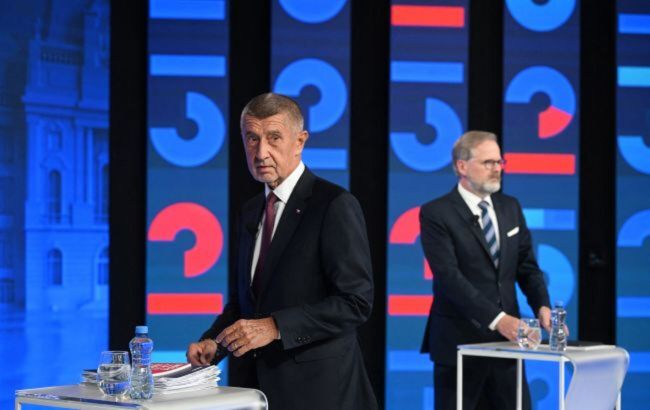Czechia faces new EU tensions as Babis forms coalition with Eurosceptics
 Photo: Czech election winner Andrej Babiš (Getty Images)
Photo: Czech election winner Andrej Babiš (Getty Images)
Czech election winner Andrej Babiš has signed a coalition agreement with Eurosceptic parties, a move that could shift the country’s stance toward the EU and Ukraine, according to Reuters.
Czech populist leader and billionaire Andrej Babiš, head of the ANO movement, is poised to return to the prime minister’s office after four years in opposition.
Babiš, who previously served as prime minister from 2017 to 2021, said he plans to form a new cabinet by mid-December. On Monday, November 3, he signed a coalition agreement with two parties: Tomio Okamura’s Freedom and Direct Democracy (SPD) and Petr Mačinka’s Motorists party. The alliance signals a potential shift toward a more Eurosceptic and populist stance within the EU, emphasizing resistance to Brussels’ influence, opposition to the bloc’s climate agenda, and tighter migration controls.
Turn away from EU alignment and support for Ukraine
One of the most contentious aspects of Babiš’s program is his stance on the war in Ukraine. The ANO leader vowed to end all Czech budgetary aid to Kyiv and scale back the ammunition-supply initiative coordinated with EU partners. While President Petr Pavel urged the government to maintain support for Ukraine, the new coalition excluded this issue from its policy priorities.
Criticism of EU policies
The coalition agreement also labels the EU’s Green Deal as "unsustainable" and rejects the planned 2035 ban on new petrol-engine car sales, positions likely to create friction with Brussels. Babiš stressed that he does not question Czech membership in the EU or NATO, but insisted the Union should be "led by member states, not the European Commission," pledging that Prague would "defend its interests" within both blocs.
Economic populism and fiscal risks
The coalition promises tax cuts, public-sector wage hikes, and energy subsidies, pledges economists warn could expand the budget deficit, recently reduced from 5% to 2% of GDP. Nonetheless, the incoming government says it will keep the deficit within the EU’s 3% limit and reject euro adoption. It even plans to enshrine the Czech koruna’s status as the national currency in the constitution.
Regional alliances and EU tensions
Babiš, a long-time ally of Hungarian Prime Minister Viktor Orbán, advocates strengthening the Visegrád Group (Czechia, Hungary, Slovakia, and Poland). Yet the bloc remains divided over Ukraine: Poland backs Kyiv, while Hungary and Slovakia have taken more pro-Russian stances. Analysts believe Babiš’s return to power could pose a serious challenge to EU unity.
Meanwhile, the European Commission is reportedly considering legal action against Poland, Hungary, and Slovakia for banning Ukrainian imports, despite the EU’s updated trade agreement with Kyiv.

